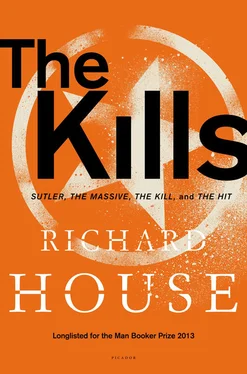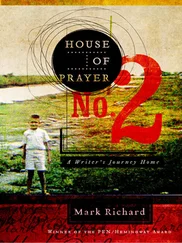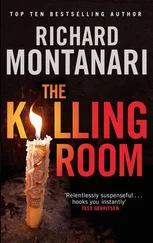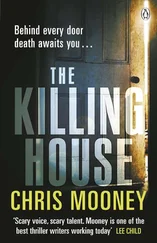For my parents Roy & Pauline House,
my partner Nick Webster,
and to the memory of John Pakosta
1.1
John Jacob Ford’s morning began at 3:03 with a call from Paul Geezler, Advisor to the Division Chief, Europe, for HOSCO International.
Listen. There’s a problem and it can’t be solved. You need to disappear.
* * *
Five hours before Geezler’s phone call, Kiprowski came to Ford’s cabin and presented him with a Mason jar. Stopped at his door, Ford listened without much interest — until Kiprowski tilted the jar and what Ford had taken to be a nest of beetles unsnagged one from another, and he could see without trouble that these were scorpions, some ruddy-black, some amber, some semi-translucent. Most, except one, with bodies smaller than a quarter. The largest scorpion, black, brittle, almost engineered, took up the entire width of the container from claw-tip to tail.
Unwilling to touch the jar, Ford managed not to recoil. He asked Kiprowski what he wanted and Kiprowski said he didn’t rightly know. He’d found them under a tarpaulin close to Burn Pit 5, and while they were dead he didn’t trust the other men not to use them for some kind of a joke, Pakosta especially, and he didn’t want them winding up in food, in cots, on seats, in pockets — and besides, he said, I thought you’d be interested. They look like toys, he said. Like clockwork toys. And they light up under blacklight. They fluoresce, honest to god. They glow.
Throughout the conversation Kiprowski called Ford Sutler, a name still fresh to Ford’s ears. Strictly speaking Sutler didn’t exist. Stephen Lawrence Sutler, the name Ford assumed on his arrival at Camp Liberty, was an alias, an invention set up by his employer, Paul Geezler, to satisfy company policy. New contracts require new contractors. Ford understood Sutler to be a useful conceit for Geezler, certainly something more valuable than a quick-fix solution to a sticky contractual arrangement. More useful and more complex than he wanted to know. On occasion Geezler asked for favours, ideas on this and that, news on what was happening at the burn pits or at the government offices.
His six weeks as Sutler were not without interest. While Sutler and Ford were one and the same person, he’d noticed a growing number of differences, most of them small. Sutler, for example, spoke his mind and honoured his word. Ford dissembled, avoided stating definite opinions. Sutler applied himself to his work. Ford just couldn’t focus. Sutler endured practical jokes, and given Kiprowski’s gift, appeared considerably less queasy about handling venomous insects. Ford was familiar with many small disappointments and failures, but Sutler had no such history and as a consequence felt competent and free.
Ford took the jar into his cabin but couldn’t bring himself to throw the contents out, and set it on the floor, far from the bed, shrouded with a T-shirt with a hardback book on top, although he knew the lid to be secure and the scorpions to be dead.
For an hour after Geezler’s call Ford sat on his cot while time slipped from him, head in hands as he attempted to reason through Geezler’s message.
Listen to me. There’s a problem and it can’t be solved. You need to disappear. Tomorrow, go to the regional government office as planned and submit the transfer requests as if everything is normal. I’ve set up four new operation accounts, and opened a junk account. Give the transfer requests and the account numbers for all of the accounts to Howell. Make sure he attaches the four operation accounts to the Massive, and make sure he completes all of the transactions by midday. Then leave. The money in the junk account is yours. Once it’s transferred no one but you can touch it. Do not inform Howell about your plans. Do not stay at Southern-CIPA. Do not return to Camp Liberty. If you return you will be arrested. Do not pack your belongings, you are being watched. Make no attempt to contact me. Disappear. Avoid military transport and personnel. The warrant will be issued for you and Howell at noon: I can’t guarantee more time. You have nine hours.
Geezler read the numbers out twice, and Ford scribbled them on a sheet of paper rested on his knee: each number eight digits long, four prefaced with HOS/OA, one with HOS/JA. Geezler had him repeat the numbers back to him.
Under these instructions lay an understanding that Ford would follow precisely what was asked of him. This was their agreement. Geezler guaranteed employment under two qualifications, you go as Sutler; you leave when I say, and the money, a tidy two hundred thousand, was good enough for him to agree to these terms without question. The warning of arrest alarmed him, although the possibility had occurred to him many times. Geezler’s instructions were clear. Proceed as normal. Leave by midday. Tell no one. Make no contact. Go.
Ford kept his passport and credit cards (all under his own name) safe in a plastic bag in a slit cut into his mattress. He ran through the possibilities. He could do exactly as Geezler advised, meet with Howell then manufacture an excuse to leave before midday — or, simpler still, leave immediately, take one of the vehicles, fuel up, drive and not stop.
A series of scratches brought his attention back to the room. Tiny and complex, and without any particular location.
As soon as he lifted the T-shirt he could see movement inside the container as one by one the smaller ginger scorpions appeared to revive. With a certain horror he raised the glass to the light and noticed how the smaller scorpions struggled to burrow and hide under the larger bodies, and this seemed strange to him, how something naturally armoured would seek the security of cover.
Listen. There’s a problem and it can’t be solved. You need to disappear. You have nine hours.
1.2
20:30 at the regional government offices at Amrah City, the Deputy Administrator for Project Finance at Southern-CIPA, Paul Howell, walked through Accounts and told the last late workers to leave. Howell stood at the centre of the office and pointed at the computer screens and said there’s a deep-clean scheduled for tonight. Log out, and unplug the terminals. I know, he said, I know. I just heard myself. Tomorrow we’ll have an updated system, maybe even something that works. Tomorrow, when you come in, you’ll need to change your password.
Howell considered himself a smart and logical man, and he understood that if any of the officers paused to think through the situation it wouldn’t make sense. So he stood in the office, chivvied them along, and waited until the last of them were gone. This gesture would cause fresh trouble: a delay in payments to utility workers, a delay in payments to the Oil Ministry, a delay in reports to Baghdad. But in one day, he could be certain, none of this would be his problem.
He sent his officers back to their quarters, knowing there were no bars or facilities within the compound, no place to relax, and that a night off work meant a night without air-con and a night without computers. While most worked late through necessity, others stayed by choice to contact their families back in the US.
Alone, Howell returned to his desk. He shut the blinds, he took out a bottle of malt and poured himself a generous measure. He settled behind his desk, drew a note from his pocket, placed it beside the phone and considered his options — he could shoot himself, he could attempt to disappear, he could destroy the records, he could burn down the office — but knew, in seriousness, that he didn’t have that kind of character or commitment. Instead, he waited until the time written down on the paper, then called Paul Geezler, Advisor to the Division Chief, Europe, for HOSCO International.
Читать дальше












